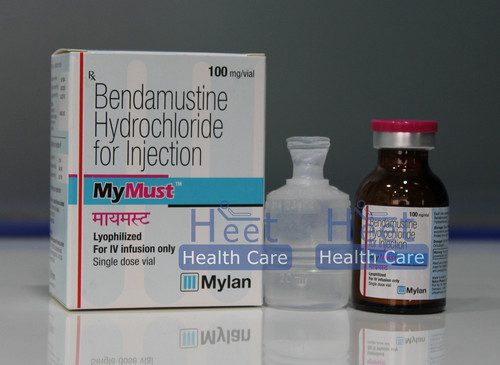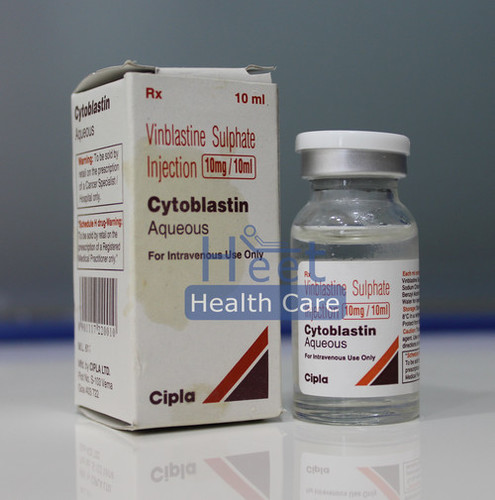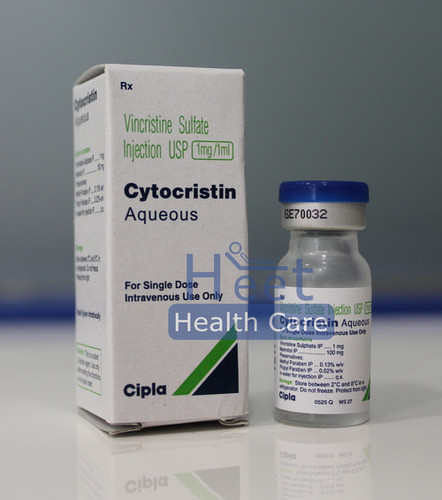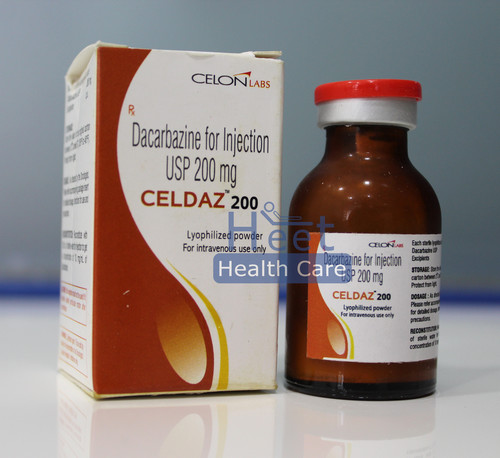Gemcitabine Injection IP 1gm
Price 1000 INR/ Box
Gemcitabine Injection IP 1gm Specification
- Origin
- India
- Dosage Form
- As Per Suggestion
- Feature
- Other
- Ingredients
- Other
- Application
- Other
- Storage Instructions
- Cool & Dry Place
- Shelf Life
- 2 Years
Gemcitabine Injection IP 1gm Trade Information
- Minimum Order Quantity
- 1 Box
- FOB Port
- Delhi, Mumbai
- Payment Terms
- Paypal, Letter of Credit (L/C), Western Union, Letter of Credit at Sight (Sight L/C), Cash Advance (CA), Telegraphic Transfer (T/T), Cash in Advance (CID), Cheque
- Supply Ability
- 10000 Boxes Per Month
- Delivery Time
- 7 Days
- Packaging Details
- Per pack 1 vial
- Main Export Market(s)
- Australia, North America, Eastern Europe, Middle East, Africa, Western Europe, Central America, South America, Asia
- Main Domestic Market
- All India
About Gemcitabine Injection IP 1gm
A drug called gemcitabine Injection IP 1gm is used to treat cancer. It includes Gemcitabine, a nucleoside analogue that prevents DNA synthesis and slows the growth of cancer cells. It is frequently used to treat a number of cancers, including pancreatic, lung, breast, ovarian, and bladder cancer. The injection is given into the bloodstream. Gemcitabine can be used alone or in conjunction with other chemotherapy medications because of its method of action, which targets rapidly dividing cancer cells. However, it could result in negative side effects like fatigue, nausea, and bone marrow suppression. The kind and stage of the malignancy, as well as the patient's general health, are used to establish the dosage and administration schedule.
Gemcitabine Injection IP 1gm Features:
1. The injection's main component, gemcitabine, a nucleoside analogue of deoxycytidine, is the active component.
2. The injection is offered in a 1gm strength, ensuring accurate administration and dosing.
3. Gemcitabine is delivered intravenously, allowing for effective distribution throughout the body and the targeting of cancer cells.
Potential advantages
1. A broad range of tumours are treated with gemcitabine, including pancreatic, lung, breast, ovarian, and bladder cancer. It works well against a variety of tumour types.
2. DNA Synthesis Interference: Gemcitabine interferes with DNA synthesis in cancer cells that divide quickly, killing the cells and halting cancer progression.
3.Combination Therapy: To improve treatment outcomes and boost overall cancer treatment effectiveness, it may be administered alone or in combination with other chemotherapy medications.
4. Palliative Care: Gemcitabine can be used to treat advanced or metastatic cancers in order to reduce their symptoms and enhance the patient's quality of life.
5. Adjuvant Therapy: After surgery or main treatment, it may occasionally be used as adjuvant therapy to assist lower the risk of cancer recurrence.
6. Gemcitabine is a great asset in oncology because of its adaptability, which enables it to be employed as a therapy option for a variety of tumours.
Always speak with an oncologist or other healthcare professional to learn more about the specific advantages and potential hazards of Gemcitabine Injection IP 1gm in your particular situation. Since each patient's response to therapy can differ, individualised medical guidance is crucial for providing the best possible cancer care.
Gemcitabine Injection IP 1gm Uses:
The main application of gemcitabine injection IP 1gm is to treat different cancers. It is recommended for:
1. For the treatment of advanced or metastatic pancreatic cancer, gemcitabine is frequently utilised.
2. Non-small cell lung cancer: It is used to treat non-small cell lung cancer, either alone or in conjunction with other chemotherapy drugs.
3. Breast Cancer: Gemcitabine may be used, especially in conjunction with other treatments, to treat advanced or metastatic breast cancer.
4. It is frequently used in conjunction with other medications to treat advanced or recurring ovarian cancer.
5. Gemcitabine is a drug that can be used to treat advanced or metastatic bladder cancer.
6. Treatment for some forms of soft tissue sarcomas is possible with this method.
Gemcitabine Injection IP 1gm Side Effects:
Gemcitabine can have a number of adverse effects, whose severity varies from patient to patient. Several frequent adverse effects include:
- Nausea and vomiting
- Fatigue and weakness
- Low blood cell counts (anemia, neutropenia, thrombocytopenia)
- Increased risk of infection
- Hair loss (temporary)
- Loss of appetite
- Skin reactions at the injection site
- Liver and kidney function changes
- Flu-like symptoms, such as fever and chills


Price:
- 50
- 100
- 200
- 250
- 500
- 1000+
More Products in Anti Cancer Injection Category
MyMust Bendamustine Hydrochloride 100mg
Price 3500 INR / Box
Minimum Order Quantity : 1 Box
Dosage Form : As Per Suggestion
Physical Form : Liquid
Drug Type : Generic Drugs
Shelf Life : 2 Years
Cytoblastin Vinblastine Sulphate 10mg/10ml
Price 250 INR / Box
Minimum Order Quantity : 1 Box
Dosage Form : As Per Suggestion
Physical Form : Liquid
Drug Type : Specific Drug
Shelf Life : 2 Years
Cytocristin Vincristine Sulphate 1mg/1ml
Price 170 INR / Box
Minimum Order Quantity : 1 Piece
Dosage Form : As Per Suggestion
Physical Form : Liquid
Drug Type : Specific Drug
Shelf Life : 2 Years
Celdaz Dacarbazine 200mg Injection
Price 450 INR / Box
Minimum Order Quantity : 1 Bottle
Dosage Form : As Per Suggestion
Physical Form : Liquid
Drug Type : Specific Drug
Shelf Life : 2 Years
 |
HEET HEALTHCARE PVT. LTD.
All Rights Reserved.(Terms of Use) Developed and Managed by Infocom Network Private Limited. |

 Send Inquiry
Send Inquiry English
English Spanish
Spanish French
French German
German Italian
Italian Chinese (Simplified)
Chinese (Simplified) Japanese
Japanese Korean
Korean Arabic
Arabic Portuguese
Portuguese Send Inquiry
Send Inquiry




